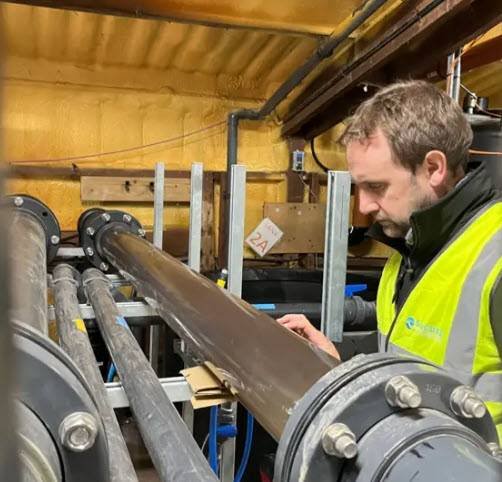SeaCURE Project Pilot Plant Launched in Weymouth to Combat Climate Change
Scientists from the Plymouth Marine Laboratory (PML) and the University of Exeter have initiated operations for the SeaCURE project pilot plant in Weymouth, Dorset.
With the ocean currently absorbing approximately 25% of the CO₂ emitted annually by humans, the SeaCURE project aims to enhance this capacity by extracting CO₂ from seawater. This process enables further absorption of atmospheric CO₂ by acidifying seawater to convert dissolved carbon into gaseous CO₂, which is then captured and stored. The treated water is later rebalanced using alkaline substances before being reintroduced into the marine environment. While the current scale of the project removes around 100 tonnes of CO₂ annually, the goal is to evaluate the feasibility of expanding this method.
Simultaneously, SeaCURE scientists, including Guy Hooper – a PhD researcher with PML and the University of Exeter – are investigating potential ecological impacts. Marine organisms such as phytoplankton and molluscs rely on dissolved carbon for essential processes like photosynthesis and shell formation, making it crucial to understand and mitigate any adverse effects.
The SeaCURE pilot plant, situated at the Weymouth SEA LIFE Centre on the South Coast of England, has received funding of £3 million from the UK Government’s Department for Business, Energy & Industrial Strategy (BEIS) as part of its initiative to discover technologies combating climate change.
As one of the 15 pilot projects supported in the UK to develop technologies capturing and storing greenhouse gases, the SeaCURE project pilot plant in Weymouth represents a significant step towards addressing climate change through innovative carbon capture methods.

